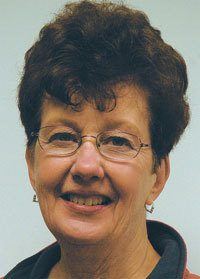Recently I have been reading “The Measure Of A Man: a spiritual autobiography,” by Sidney Poitier. In this candid look at the events and people that have shaped his life, the reader gets a glimpse of some deep truths about love, anger, forgiveness and personal peace.
For me it has done even more. It has given me a perspective on Scripture that once again confirms Scripture’s timelessness as a guide to a fulfilling life. Hang in there with me, there really is a connection.
Two events shaped Poitier’s life and his responses to the challenges he faced. First, he grew up on Cat Island in the Bahamas. His family was poor, if you measure poor by the standards of today. They did not have indoor plumbing, electricity or other modern comforts.
Yet, as Sidney grew up he had the security of knowing how much his parents and siblings loved him. He was nurtured. He was given the freedom to explore his surroundings while still being kept safe. “On Cat Island, … I knew how I was going to get through the day, and how Mom and Dad were going to get through the day, and how we were all going to sit on the porch at the end of the day, together…”
Later, in his teens, he moved away. He found himself in Florida and later migrated to New York. This was prior to the civil rights movement. He discovered the difficult truths about segregation and “being black.” Through the years, he found that to become an actor meant putting up with meager roles and working in meager paying jobs. He admits to having a rage and anger swell up inside from time to time. However, his early upbringing served him well. He had grown up feeling loved and wanted. He had a sense of self-worth that came from being unconditionally loved, even when he made mistakes.
It was not that he did not struggle with anger, but he came to the conclusion that anger was a wasted form of energy. Simply put, “I‘ve learned that I must find positive outlets for anger or it will destroy me. …I have to try to find a way to channel that anger to the positive and the highest positive is forgiveness.” He states that forgiveness applies not only to others but to ourselves. And he points out that through being forgiving we find peace.
As I read and reread parts of this book, I kept seeing parallels to our Godly story, our Godly autobiography, if you will. It occurred to me more than once that we are all loved beyond measure. God loves us and to make sure we have that truth available to us, God sent Jesus to help us connect with him. Jesus, a man completely human as well as divine. Jesus experienced every human emotion and life experience so that we can identify with him. If we can embrace this kind of love then we can have confidence to progress through life with its twists and turns and believe that we can not only make it, but find peace and security.
Ah, but there is more. Because of Jesus’ sacrificial death and resurrection, we can experience forgiveness that is permanent, as long as we accept what Jesus has done. And the good news is that forgiveness is a renewable resource, a gift from God that is always available.
Reading this book helped me connect with Scripture’s messages in a way that brought home their power to provide renewed energy and hope. It was another perspective that will help me to explain the Gospel message with new vitality. And, like Sidney Poitier, I can go sit with God on the porch day after day, knowing I can get through every day with God at my side.
Cindy Ehlke writes from Calvary Presbyterian.


